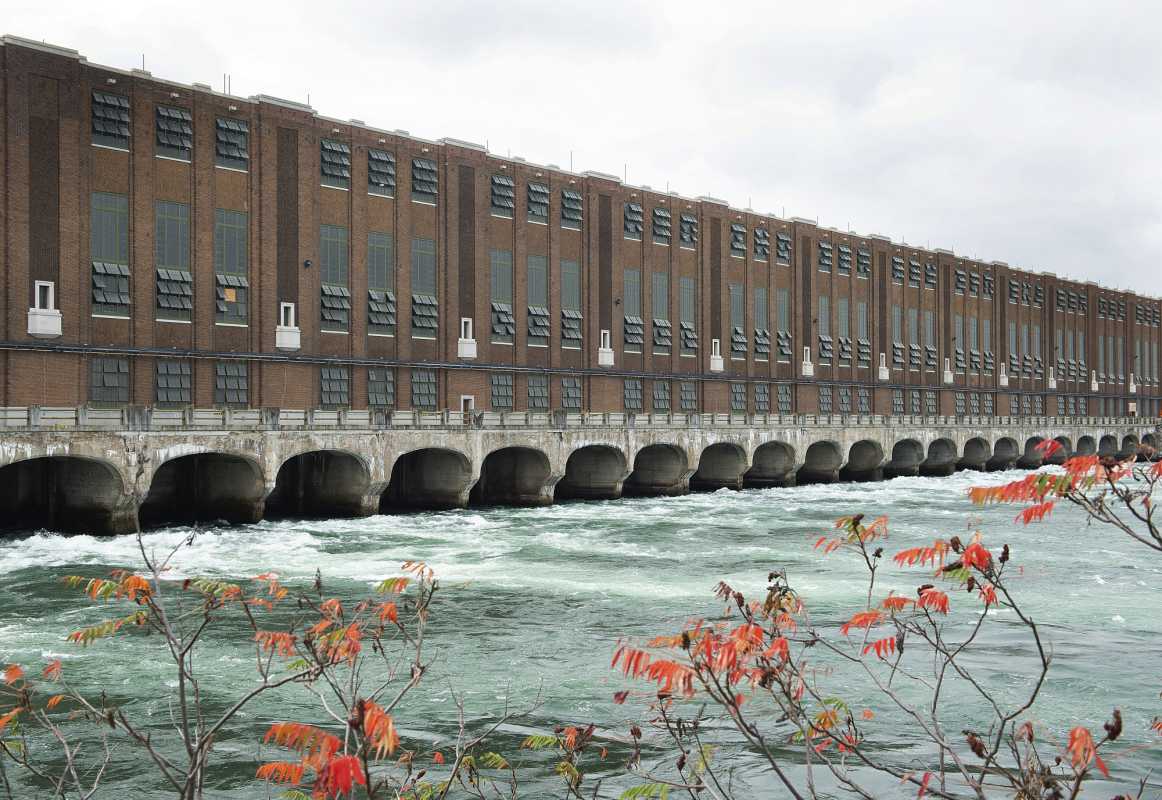Business
Hydro-Québec Accelerates Electricity Export Contracts to the US Market

Amid years of negotiations and multiple challenges, the electricity sales contracts in the United States are finally materializing for Hydro-Québec.
Even though Quebec does not have enough electricity to supply all the companies that would want clean energy here in the future, the construction of two transmission lines to deliver massive amounts of electrons to Boston and New York is in full swing in the regions of Chaudière-Appalaches and Montérégie.
Hydro-Québec spokesperson Lynn St-Laurent mentioned that pylons are already erected at the Quebec-US border in the Chaudière-Appalaches region.
After months of interruption due to Maine residents’ opposition to the planned transmission line passing through their state to power the consumers in Boston, construction work resumed last fall and has been progressing since then.
“It is moving ahead at a good pace,” the spokesperson said about the Quebec portion of the line, which spans 100 kilometers, connecting the US border to the Saint-Adrien-d’Irlande substation.
The construction of the transmission line is also advancing in US territory, with the revised schedule now aiming to start delivering electricity to Massachusetts in December 2025, three years later than originally planned.
On the other end of Quebec, in Montérégie, construction of another electricity transmission line to New York is underway. The Quebec portion of the line will link the Hertel substation in La Prairie to the US border 60 kilometers away. The connection with the Champlain-Hudson Power Express line to New York will be made under the Richelieu River before continuing under Lake Champlain.
A converter is under construction at the Hertel substation, and trenches have started to be dug for burying the line, as mentioned by Lynn St-Laurent. The start of electricity deliveries to New York is scheduled for 2026, a few months after those to Boston.
Hydro-Québec has committed to supplying 9.5 terawatt-hours of electricity to Boston for 20 years and 10 terawatt-hours to New York for 25 years, amounting to 10% of its total production.
These long-term commitments, made when there were electricity surpluses, are now materializing in a radically different context. Hydro-Québec is facing electricity shortages to meet the numerous industrial demands and is aiming to boost its production significantly. The company plans to invest over $100 billion in constructing new production facilities and transmission lines to meet Quebec’s demand, which will increase the electricity costs for Quebec residents.
The production cost of the upcoming kilowatt-hours is currently estimated at 11 cents, whereas the average cost of existing Hydro-Québec installations is 3 cents.
Despite this, the state-owned company believes that the long-term export contracts are a good deal for Quebec. These contracts provide substantial and stable revenues for Hydro-Québec while also contributing to the planet’s decarbonization, according to their spokesperson.
“We are building energy highways that, once the contracts conclude in 20 years, will become new sources of renewable energy supply for Quebec,” Lynn St-Laurent stated.
In hindsight, considering the increasing demand for Quebec’s electricity from future sectors like electric vehicles, would Hydro-Québec have signed such significant and long-term contracts? Perhaps not, as suggested by Yvan Cliche from the Centre for International Studies and Research at the University of Montreal.
The energy expert, who has previously collaborated with Hydro-Québec, acknowledges the rapidly changing landscape. These agreements were signed during a surplus situation with very slow demand growth in Quebec.
The expert highlights that the new scenario compels Hydro-Québec to ramp up its production, incurring economic and environmental costs for Quebec residents, leading to a rise in electricity bills.
Nevertheless, he also believes that the benefits outweigh the drawbacks. “The contracts with Massachusetts and New York will generate significant profits for Hydro-Québec and substantial environmental benefits,” he added.
According to him, tightening the electrical networks between neighbors only brings advantages, facilitating exchanges and enhancing network reliability.
Yvan Cliche notes that the long-term sale of Quebec’s electricity to the US also increases Quebec’s political influence and weight in our southern neighbors, emphasizing this as an aspect of the contracts not to be overlooked.
“There are no regrets to be had,” he reassures.












